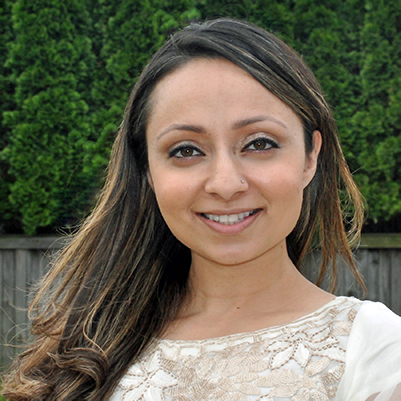Autism Awareness Month with Sadia Heil
As we wrap up the month of April, we want to take the time to recognize Autism Acceptance Month. The prevalence of autism in the United States has risen from 1 in 125 children in 2004 to 1 in 44 in 2022 according to the Autism Society. With this exponential growth comes an even stronger need to educate ourselves on autism acceptance.
To help us do so, we pass the mic over to 2020 Tillman Scholar Sadia Heil. As a mother, an Air Force reservist, and spouse to a U.S. Coast Guardsman, Sadia is passionate about building a more inclusive world for her children and the generations that follow. She recently completed a master of education in special education, with a focus on autism spectrum disorders. Her background and life experiences led her to identify a significant societal gap during the COVID-19 pandemic: a lack of truly inclusive preschools that embrace neurodiverse children and have the resources to support them. Sadia aspires to mitigate this gap through teaching, advocacy, and developing an inclusive preschool someday. According to her, inclusion begins in early childhood.
Tell us about the importance of accepting neurodiversity. What role does that play in ending the stigma that often accompanies autism diagnoses?:
“Acceptance implies that a certain level of awareness exists. Awareness that, according to the CDC, about 1 in 44 eight-year-old children have been identified with autism spectrum disorder (ASD). Awareness that autism is often an invisible disability that manifests uniquely in each individual, hence the term “spectrum.” And finally, awareness that we have much to learn about autism. Acceptance signifies embracing neurodiversity and neurodivergence—those whose brains function differently in one or more ways than is considered standard or typical. To me, acceptance signifies action.”
How can we embrace these differences?
“By fostering inclusion in all facets of life—classrooms, playgrounds, sports teams, places of worship, airplanes, the library, the grocery store, etc. And by considering accessibility. Just as wheelchair ramps and American Sign Language interpreters increase accessibility, there are also considerations for autistic individuals. Fortunately, some airports, sports venues, and museums have developed sensory-friendly spaces and events for individuals with autism and their families—we need more of these.”
How can others be a part of advancing the acceptance of autistic individuals?
“As society continues to tune in to the voices of autistic individuals and their loved ones, we can be open to learning from their perspectives, and we can support their advocacy. Overall, ’Autism Acceptance Month’ means celebrating neurodiversity through education, inclusion, accessibility, and most importantly—empathy. As Temple Grandin said, ‘the world needs all types of minds.’”




